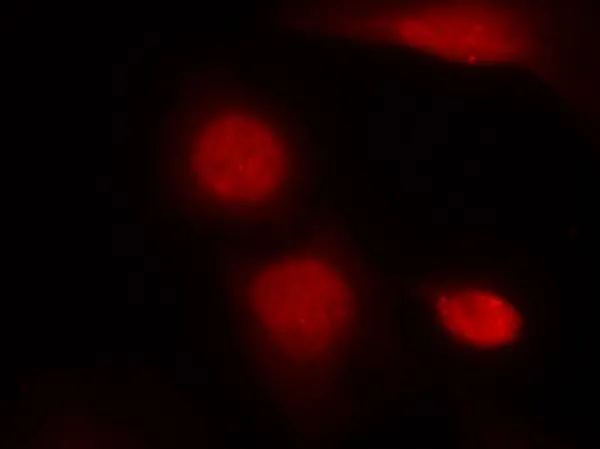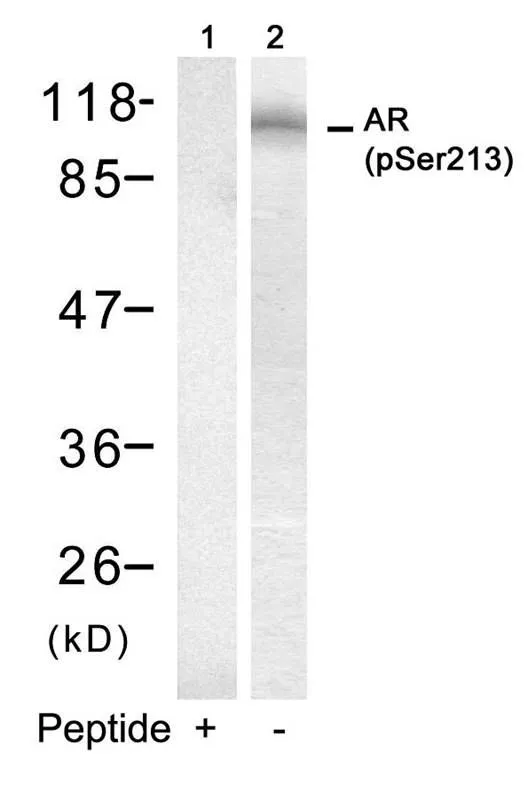
ICC/IF analysis of methanol-fixed HeLa cells using GTX50182 Androgen Receptor (phospho Ser213) antibody.
Androgen Receptor (phospho Ser213) antibody
GTX50182
ApplicationsImmunoFluorescence, Western Blot, ImmunoCytoChemistry
Product group Antibodies
ReactivityHuman
TargetAR
Overview
- SupplierGeneTex
- Product NameAndrogen Receptor (phospho Ser213) antibody - Orthogonal Validated
- Delivery Days Customer9
- Application Supplier NoteWB: 1:500-1:1000. ICC/IF: 1:100-1:200. *Optimal dilutions/concentrations should be determined by the researcher.Not tested in other applications.
- ApplicationsImmunoFluorescence, Western Blot, ImmunoCytoChemistry
- CertificationResearch Use Only
- ClonalityPolyclonal
- Concentration1 mg/ml
- ConjugateUnconjugated
- Gene ID367
- Target nameAR
- Target descriptionandrogen receptor
- Target synonymsAIS; androgen receptor; AR8; DHTR; dihydrotestosterone receptor; HUMARA; HYSP1; KD; NR3C4; nuclear receptor subfamily 3 group C member 4; SBMA; SMAX1; TFM
- HostRabbit
- IsotypeIgG
- Protein IDP10275
- Protein NameAndrogen receptor
- Scientific DescriptionThe androgen receptor gene is more than 90 kb long and codes for a protein that has 3 major functional domains: the N-terminal domain, DNA-binding domain, and androgen-binding domain. The protein functions as a steroid-hormone activated transcription factor. Upon binding the hormone ligand, the receptor dissociates from accessory proteins, translocates into the nucleus, dimerizes, and then stimulates transcription of androgen responsive genes. This gene contains 2 polymorphic trinucleotide repeat segments that encode polyglutamine and polyglycine tracts in the N-terminal transactivation domain of its protein. Expansion of the polyglutamine tract from the normal 9-34 repeats to the pathogenic 38-62 repeats causes spinal bulbar muscular atrophy (SBMA, also known as Kennedys disease). Mutations in this gene are also associated with complete androgen insensitivity (CAIS). Alternative splicing results in multiple transcript variants encoding different isoforms. [provided by RefSeq, Jan 2017]
- ReactivityHuman
- Storage Instruction-20°C or -80°C,2°C to 8°C
- UNSPSC12352203
References
- Caffeic acid phenethyl ester suppresses androgen receptor signaling and stability via inhibition of phosphorylation on Ser81 and Ser213. Kuo YY et al., 2019 Aug 20, Cell Commun SignalRead more

